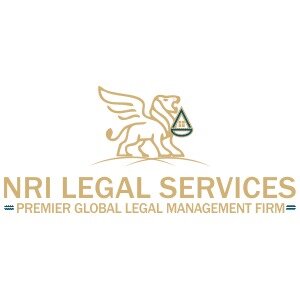Best Nonprofit & Charitable Organizations Lawyers in Chandigarh
Share your needs with us, get contacted by law firms.
Free. Takes 2 min.
List of the best lawyers in Chandigarh, India
About Nonprofit & Charitable Organizations Law in Chandigarh, India
Nonprofit and charitable organizations in Chandigarh, India, operate under a unique legal framework that governs their formation, regulation, and operation. These organizations are formed with the primary objective of serving public interests without making a profit. They may work in various sectors such as education, healthcare, environment, and social welfare, playing a crucial role in community development and social progress. The legal structure for these organizations typically includes registration under various Acts such as the Societies Registration Act, 1860, the Indian Trusts Act, 1882, or Section 8 of the Companies Act, 2013.
Why You May Need a Lawyer
Seeking legal advice in the realm of nonprofit and charitable organizations is crucial for several reasons. Common scenarios include:
- Setting up the organization: Navigating through the registration process and choosing the appropriate legal structure.
- Compliance: Ensuring adherence to national and local legislations, such as tax filings, periodic reports, and audits.
- Fundraising: Legal assistance in understanding the rules and limitations regarding fundraising and foreign contributions.
- Contracts and agreements: Drafting and reviewing contracts with donors, employees, and service providers.
- Dispute resolution: Managing disputes within the organization or with external entities and stakeholders.
- Dissolution: Guidance on the legal process of dissolving an organization when necessary.
Local Laws Overview
In Chandigarh, the legal process for forming and operating nonprofit and charitable organizations involves compliance with several regulations. Some key aspects include:
- Registration and Structure: Organizations can be registered under different acts based on their objectives and operational requirements.
- Tax Exemption: These organizations might be eligible for tax exemptions and benefits under Section 80G of the Income Tax Act, but must adhere to specific conditions.
- Foreign Funding: Compliance with the Foreign Contribution (Regulation) Act, 2010 is mandatory if the organization receives foreign contributions.
- State Regulations: Organizations must comply with local state regulations and maintain transparency in financial and operational affairs.
- Board Governance: Legal requirements for board composition and responsibilities must be adhered to ensure accountability and proper governance.
Frequently Asked Questions
What is the process to register a nonprofit organization in Chandigarh?
Firstly, decide on an appropriate structure - society, trust, or Section 8 company. Then, draft the necessary documentation including a memorandum and by-laws, and submit these to the appropriate registrar office for approval.
Can a nonprofit organization earn a profit?
Nonprofit organizations should not operate for profit. However, they can engage in revenue-generating activities if those promote the organization's charitable mission and any surplus is reinvested in its objectives.
Is registration mandatory for all nonprofit organizations?
Registration is generally required to gain legal recognition, tax benefits, and public trust. It is also necessary for opening bank accounts and receiving donations.
What tax exemptions apply to nonprofit organizations?
Registered nonprofits in India may be eligible for income tax exemptions under Sections 11 and 12, and donors may receive tax deductions for their contributions under Section 80G.
Are there specific reporting requirements for nonprofits in Chandigarh?
Yes, they must file annual returns, maintain proper books of accounts, and submit financial statements to relevant authorities to comply with legal standards.
What legal challenges might nonprofit organizations face?
Legal challenges may include compliance with funding regulations, governance issues, contract disputes, and adhering to changes in laws governing nonprofit operations.
How can nonprofits receive foreign donations legally?
Organizations must register under the Foreign Contribution (Regulation) Act, 2010, to accept foreign contributions legally and comply with reporting obligations.
What is a Section 8 company?
A Section 8 company is a legal structure for organizations established with philanthropic objectives, such as promoting commerce, art, science, or any other charitable purpose.
Can a nonprofit organization be dissolved, and what is the process?
Yes, it can be dissolved. The process involves legal procedures such as settling liabilities, distributing assets as per organizational by-laws, and legal documentation for closure.
Do nonprofits require a license to operate in Chandigarh?
Beyond registration, certain nonprofit activities or services may require specific licenses or permits depending on their nature, such as running a hospital or educational institution.
Additional Resources
For further support and information, consider the following resources:
- The Registrar of Societies: For information on society registration and compliance.
- Income Tax Department: For guidelines on tax exemptions and compliance.
- Ministry of Corporate Affairs: For details regarding Section 8 companies.
- Niti Aayog: Provides information on the NGO Darpan portal, which offers a platform for NGOs to connect with government bodies.
- Legal Aid Societies: Offer pro-bono services to NGOs in need of legal assistance.
Next Steps
If you need legal assistance in the field of nonprofit and charitable organizations, consider the following steps:
- Consult a legal professional specializing in nonprofit law to gain insights tailored to your situation.
- Engage with local law firms that have experience in dealing with nonprofit organizations.
- Attend workshops and seminars focusing on nonprofit legal issues to stay informed.
- Utilize online legal services to get initial advice and guidance.
- Contact relevant government bodies to seek clarification on legal requirements and processes.
Lawzana helps you find the best lawyers and law firms in Chandigarh through a curated and pre-screened list of qualified legal professionals. Our platform offers rankings and detailed profiles of attorneys and law firms, allowing you to compare based on practice areas, including Nonprofit & Charitable Organizations, experience, and client feedback.
Each profile includes a description of the firm's areas of practice, client reviews, team members and partners, year of establishment, spoken languages, office locations, contact information, social media presence, and any published articles or resources. Most firms on our platform speak English and are experienced in both local and international legal matters.
Get a quote from top-rated law firms in Chandigarh, India — quickly, securely, and without unnecessary hassle.
Disclaimer:
The information provided on this page is for general informational purposes only and does not constitute legal advice. While we strive to ensure the accuracy and relevance of the content, legal information may change over time, and interpretations of the law can vary. You should always consult with a qualified legal professional for advice specific to your situation.
We disclaim all liability for actions taken or not taken based on the content of this page. If you believe any information is incorrect or outdated, please contact us, and we will review and update it where appropriate.












